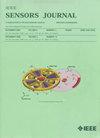双未知输入多传感器系统的信息融合滤波方案
IF 4.3
2区 综合性期刊
Q1 ENGINEERING, ELECTRICAL & ELECTRONIC
引用次数: 0
摘要
提出了一种具有双未知输入的多传感器系统的估计技术。该方法将系统状态和未知输入的估计过程分离开来,对状态和观测方程中存在不同未知输入的多传感器系统分别进行状态估计和双未知输入的估计。在对每个传感器建立局部滤波算法后,利用线性最小方差信息融合准则(LMVIFC)对单个传感器的状态估计进行融合,得到线性最小方差无偏状态估计。为了保证估计的客观性和最小的变化,每个传感器同时独立地估计其观测方程中的未知输入。然后使用LMVIFC融合相关的估计。利用李雅普诺夫稳定性理论从理论上论证了该滤波器在双未知输入下的稳定性。最后,蒙特卡罗模拟用于评估和对比建议的方法与其他传统技术。结果表明,即使在具有两种不同类型未知输入的复杂场景中,所建议的方法也可以精确且一致地跟踪系统状态。在高超声速飞行器控制系统中,其优势得到进一步证实。本文章由计算机程序翻译,如有差异,请以英文原文为准。
Information Fusion Filtering Scheme for Multisensor Systems With Dual-Unknown Inputs
An estimating technique for multisensor systems with dual-unknown inputs is presented in this work. The approach separates the estimate procedures of system states and unknown inputs, carrying out state estimation and estimation of the dual-unknown inputs individually for multisensor systems with different unknown inputs in the state and observation equations. The state estimates from individual sensors are fused using the linear minimum variance information fusion criterion (LMVIFC) to produce linearly minimal variance unbiased state estimates after local filtering algorithms are created for each sensor. In order to guarantee the estimates’ objectivity and minimal variation, each sensor simultaneously estimates the unknown inputs in its observation equation independently. The associated estimates are then fused using LMVIFC. The Lyapunov stability theory is used to theoretically demonstrate the filter’s stability under dual-unknown inputs. Last, Monte Carlo simulations are used to assess and contrast the suggested approach with other conventional techniques. The outcomes demonstrate that even in complex scenarios with two distinct kinds of unknown inputs, the suggested approach can precisely and consistently track system states. In a hypersonic aircraft control system, its advantage is further confirmed.
求助全文
通过发布文献求助,成功后即可免费获取论文全文。
去求助
来源期刊

IEEE Sensors Journal
工程技术-工程:电子与电气
CiteScore
7.70
自引率
14.00%
发文量
2058
审稿时长
5.2 months
期刊介绍:
The fields of interest of the IEEE Sensors Journal are the theory, design , fabrication, manufacturing and applications of devices for sensing and transducing physical, chemical and biological phenomena, with emphasis on the electronics and physics aspect of sensors and integrated sensors-actuators. IEEE Sensors Journal deals with the following:
-Sensor Phenomenology, Modelling, and Evaluation
-Sensor Materials, Processing, and Fabrication
-Chemical and Gas Sensors
-Microfluidics and Biosensors
-Optical Sensors
-Physical Sensors: Temperature, Mechanical, Magnetic, and others
-Acoustic and Ultrasonic Sensors
-Sensor Packaging
-Sensor Networks
-Sensor Applications
-Sensor Systems: Signals, Processing, and Interfaces
-Actuators and Sensor Power Systems
-Sensor Signal Processing for high precision and stability (amplification, filtering, linearization, modulation/demodulation) and under harsh conditions (EMC, radiation, humidity, temperature); energy consumption/harvesting
-Sensor Data Processing (soft computing with sensor data, e.g., pattern recognition, machine learning, evolutionary computation; sensor data fusion, processing of wave e.g., electromagnetic and acoustic; and non-wave, e.g., chemical, gravity, particle, thermal, radiative and non-radiative sensor data, detection, estimation and classification based on sensor data)
-Sensors in Industrial Practice
 求助内容:
求助内容: 应助结果提醒方式:
应助结果提醒方式:


